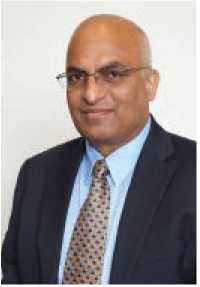Surya R・ Kalidindi”
1 Georgia Institute of Technology, Atlanta, GA, USA
EXTENDED ABSTRACT: The dramatic acceleration of the current materials innovation cycles is contingent on the development and implementation of high throughput strategies in both experimentation and physics-based simulations, and their seamless integration using the emergent AI/ML (artificial intelligence/machine learning) toolsets. This talk presents a novel information gain-driven Bayesian ML framework [1] with the following main features: (i) explicit consideration of the physics parameters as inputs (i.e., regressors) in the formulation of process-structure-property (PSP) surrogate models needed to drive materials development workflows; (ii) information gain-driven autonomous workflows for training efficient ML surrogates to otherwise computationally expensive physics-based simulations; (iii) Bayesian design of experiments strategies that identify objectively the next experiment to be performed in order to maximize the expected information gain;
(iv) versatile feature engineering for multiscale material internal structure using the formalism of n-point spatial correlations;
(v) amenable to a broad suite of surrogate model building approaches (including Gaussian Process regression (GPR), convolutional neural networks (CNN)); and (vi) Markov chain Monte Carlo (MCMC)-based computation of posteriors for physics parameters using all available experimental observations (usually disparate and sparse). The benefits of this new framework will be illustrated with multiple case studies.
Keywords: Bayesian learning, AI/ML, materials data science, design of experiments, physics-based simulations REFERENCES
[1] S. R. Kalidindi, MRS Communications, 9, (2019) 518-531.

Surya Kalidindi is a Regents Professor and Rae S. and Frank H. Neely Chair Professor in the George W. Woodruff School of Mechanical Engineering with joint appointments in the School of Computational Science and Engineering and the School of Materials Science and Engineering at Georgia Institute of Technology, Georgia, USA. Surya's research efforts have made seminal contributions to the fields of crystal plasticity, micro structure design, and materials informatics. Surya has been elected a Fellow of ASM International, TMS, andASME. He has also been recognized with the Alexander von Hximboldt Research Award, the Vannever Bush Faculty Fellow, and the Khan International Award. He has authored/co-authored 2 books, 8 book chapters, 2 edited volumes, and over 300 archival journal articles. His research currently has a h-index of 90 (as per Google Scholar). Most recently, he has co-fbunded the new venture-funded start-up Multiscale Technologies, Inc., which offers a commercial SaaS platform for AI/ML driven accelerated materials innovation.